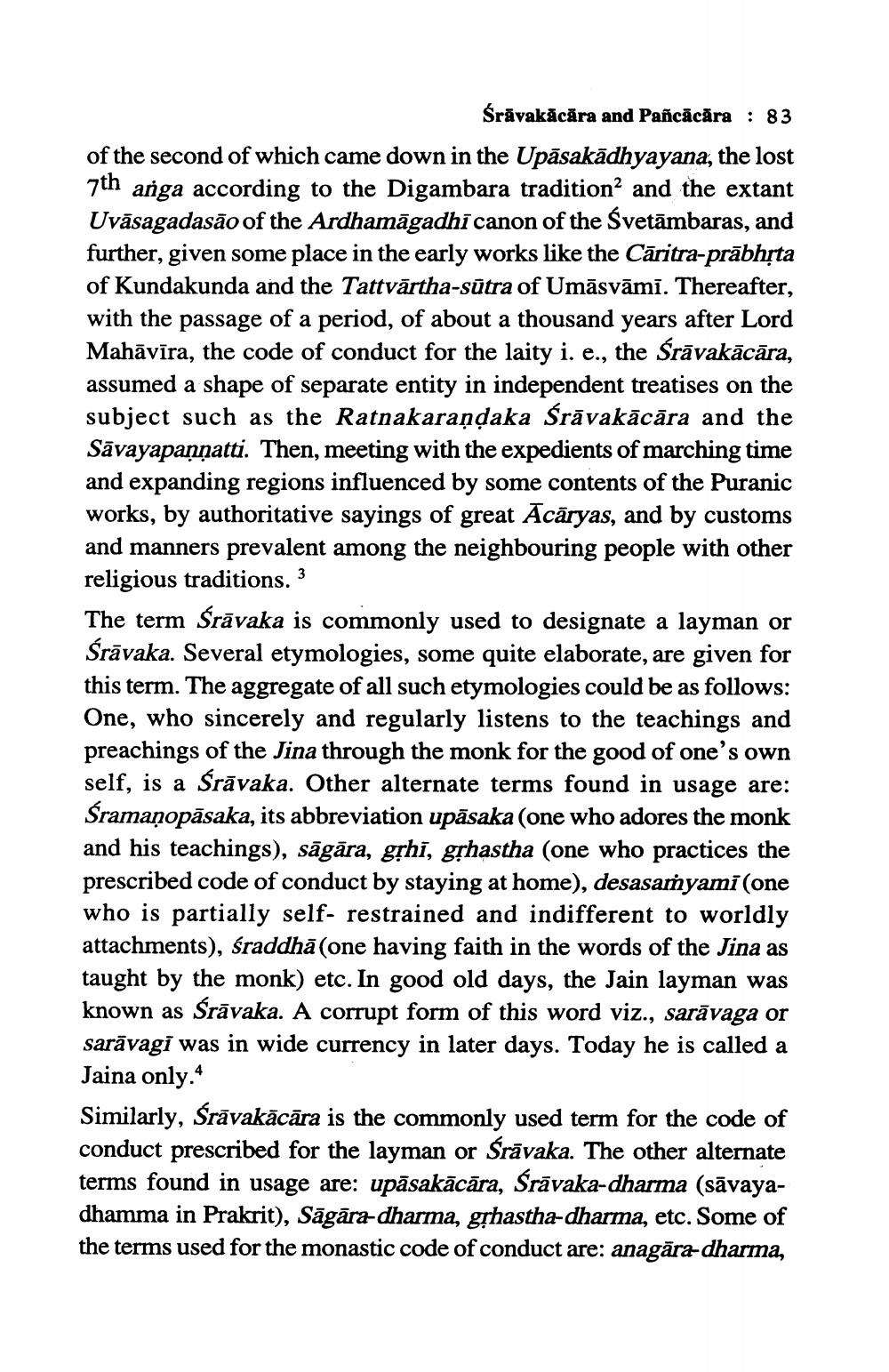________________
Śrāvakăcăra and Pañcācāra : 83
of the second of which came down in the Upāsakādhyayana, the lost 7th anga according to the Digambara tradition” and the extant Uvāsagadasão of the Ardhamāgadhi canon of the Svetāmbaras, and further, given some place in the early works like the Cāritra-prābhsta of Kundakunda and the Tattvārtha-sūtra of Umāsvāmī. Thereafter, with the passage of a period, of about a thousand years after Lord Mahāvīra, the code of conduct for the laity i. e., the Śrāvakācāra, assumed a shape of separate entity in independent treatises on the subject such as the Ratnakaranďaka Śrāvakācāra and the Sāvayapaņņatti. Then, meeting with the expedients of marching time and expanding regions influenced by some contents of the Puranic works, by authoritative sayings of great Ācāryas, and by customs and manners prevalent among the neighbouring people with other religious traditions. 3 The term Śrāvaka is commonly used to designate a layman or Śrāvaka. Several etymologies, some quite elaborate, are given for this term. The aggregate of all such etymologies could be as follows: One, who sincerely and regularly listens to the teachings and preachings of the Jina through the monk for the good of one's own self, is a Śrāvaka. Other alternate terms found in usage are: Sramanopāsaka, its abbreviation upāsaka (one who adores the monk and his teachings), sāgāra, gļhi, gshastha (one who practices the prescribed code of conduct by staying at home), desasarnyami(one who is partially self- restrained and indifferent to worldly attachments), śraddhā(one having faith in the words of the Jina as taught by the monk) etc. In good old days, the Jain layman was known as Śrāvaka. A corrupt form of this word viz., sarāvaga or sarāvagi was in wide currency in later days. Today he is called a Jaina only. Similarly, Śrāvakācāra is the commonly used term for the code of conduct prescribed for the layman or Srāvaka. The other alternate terms found in usage are: upāsakācāra, Srāvaka-dharma (sāvayadhamma in Prakrit), Sāgāra-dharma, gļhastha-dharma, etc. Some of the terms used for the monastic code of conduct are: anagāra-dharma,




